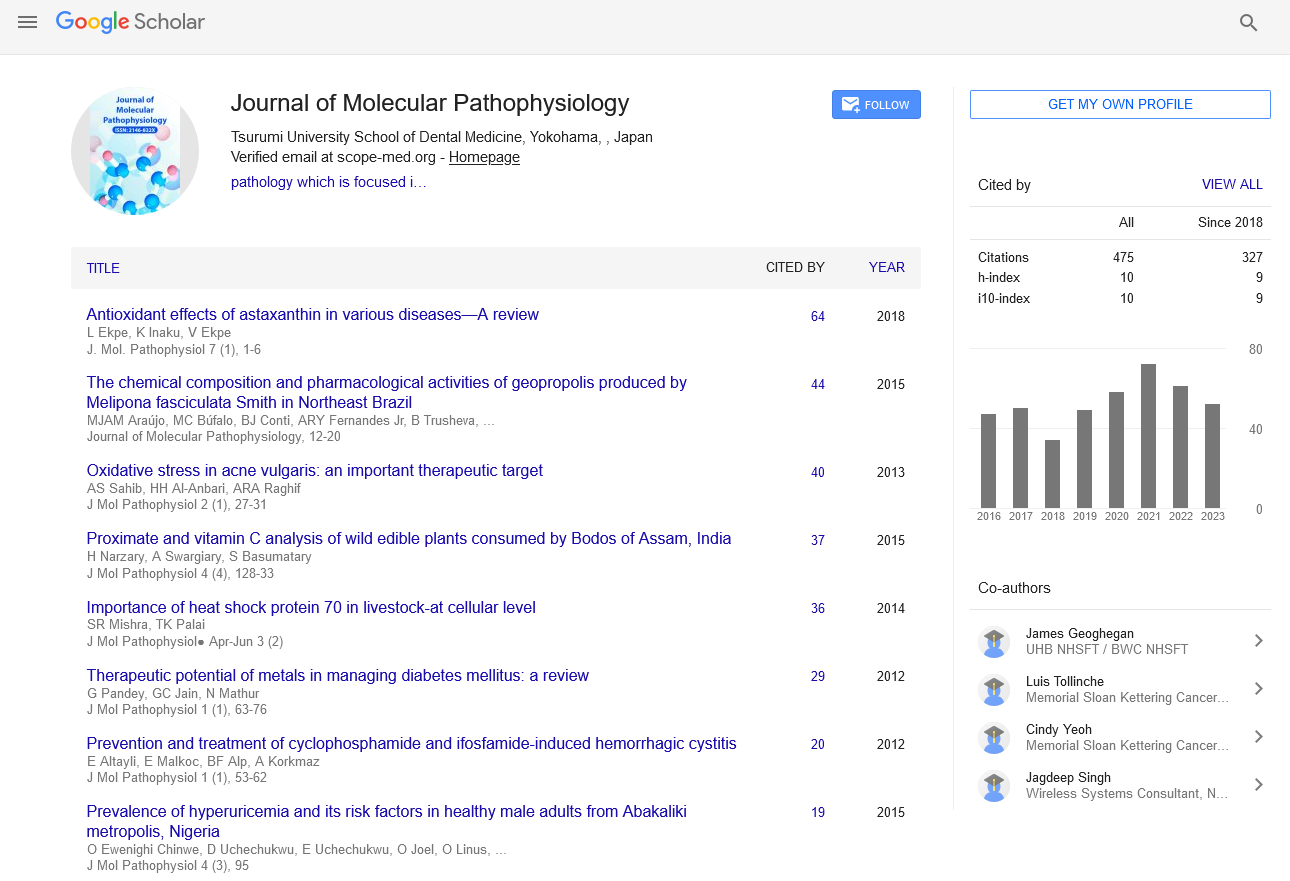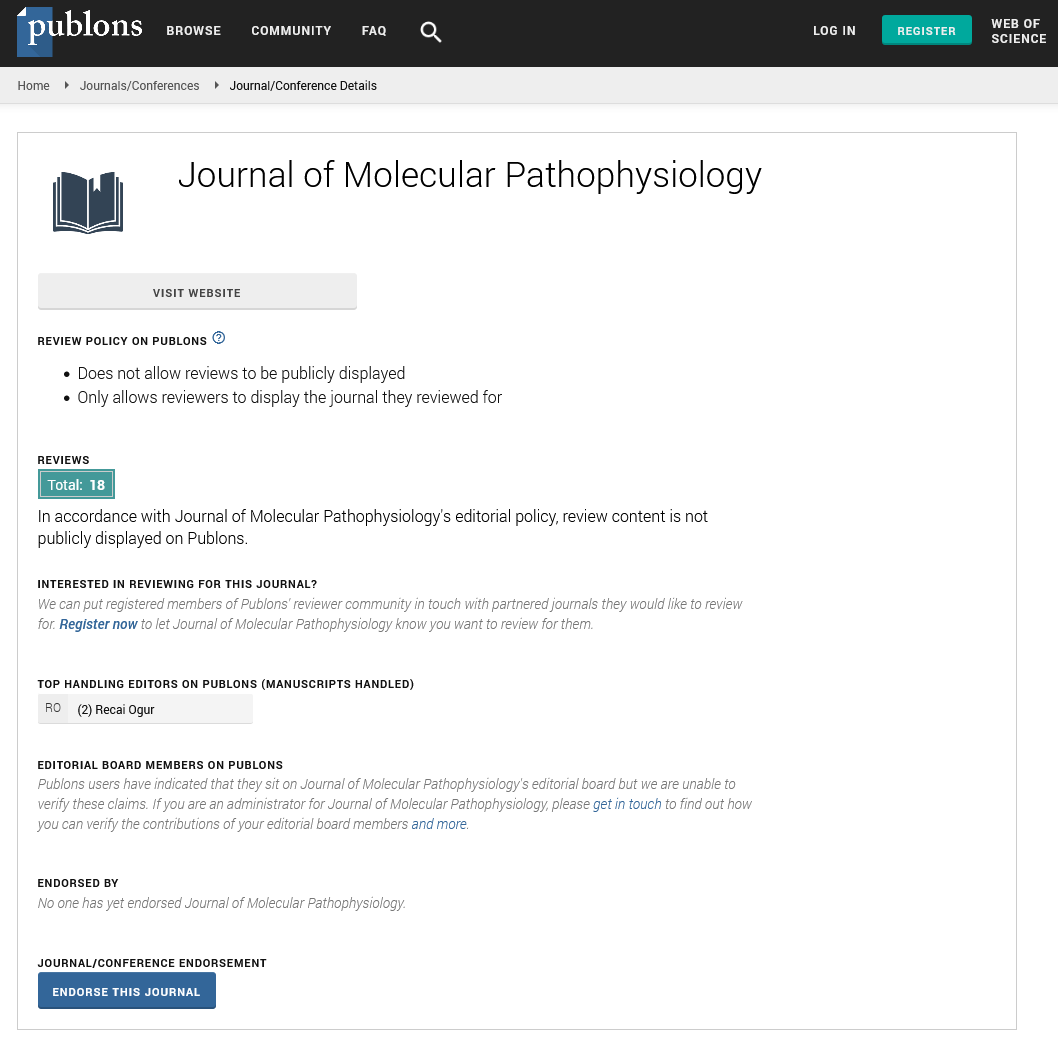Opinion Article - Journal of Molecular Pathophysiology (2022)
Management and Lifestyle Modifications to Treat Hypertension
Jordi Marino, Department of Neurosurgery, Medical University of Gdansk, Gdansk, Poland, Email: jordi12345@gmail.com
Received: 13-Apr-2022, Manuscript No. JMOLPAT-22-64199; Editor assigned: 15-Apr-2022, Pre QC No. JMOLPAT-22-64199 (PQ); Reviewed: 02-May-2022, QC No. JMOLPAT-22-64199; Revised: 06-May-2022, Manuscript No. JMOLPAT-22-64199 (R); Published: 13-May-2022
Description
Lifestyle modifications and antihypertensive medications are used to treat hypertension. The goal of hypertension treatment is to lower blood pressure to between 140/90 and 160/100 mmHg. According to a 2003 review, reducing blood pressure by 5 mmHg reduces the incidence of stroke by 34%, ischemic heart disease by 21%, dementia, cardiogenic shock, and cardiovascular disease mortality.
Blood pressure should be kept between 140/90 mmHg and 160/100 mmHg for the majority of people. In general, attempting to drop blood pressure below the prescribed 140/90 mmHg will cause more harm than good for persons with high blood pressure, especially for the elderly. Some people with diabetes or kidney illness are advised to keep their blood pressure below 120/80 mmHg, but data does not support this.
Medication benefits are linked to a person’s risk of heart disease. The evidence for medications in patients with mild hypertension (blood pressure between 140 and 160 mmHg) who have no other health problems is equivocal, with some studies finding no impact and others indicating benefit. Drugs for mild hypertension did not improve the risk of mortality, stroke, or cardiovascular disease, according to a 2012 Cochrane review, albeit they did cause side effects in one out of every twelve people. A second study found that the medicine averted stroke in 1 in 223 people and mortality in 1 in 110 people who used it (mainly diabetics with problematic blood pressure control).
Lifestyle modifications
Dietary changes, physical activity, and weight loss are the primary lines of treatment for hypertension, and they are all part of the primary prevention lifestyle changes.
All of them have been shown to reduce blood pressure in hypertensive patients significantly. Their potential efficacy is comparable to, if not superior to, that of a single drug. In addition to medication, lifestyle changes should be made if hypertension is severe enough to necessitate treatment immediately away.
A reduced salt diet and a vegetarian diet are advantageous dietary changes. Both patients with hypertension and people with normal blood pressure benefit from a long-term low-sodium diet for lowering blood pressure. The DASH diet, which includes nuts, whole grains, fish, poultry, fruits, and vegetables, also helps to decrease blood pressure. The strategy focuses in lowering salt intake while increasing potassium, magnesium, calcium, and protein intake. Because a vegetarian diet has been linked to lower blood pressure, switching to one could help you lower yours. The Cochrane Hypertension group conducted meta-analyses and found no evidence of a significant reduction in blood pressure from any combination of calcium, magnesium, or potassium supplements; this contradicts earlier systematic reviews that claimed that adjusting dietary intake for each of these nutrients could help people with high blood pressure. While weight loss regimens lower body weight and blood pressure, it’s uncertain whether they also lessen unfavorable consequences.
Some stress-reduction methods, such as biofeedback or transcendental meditation, may be appropriate supplements to other hypertension treatments. Other treatments, such as yoga, relaxation, and other types of meditation, do not appear to lower blood pressure, and many stress-reduction studies have serious methodological shortcomings. There is no conclusive evidence that using stress reduction measures to lower blood pressure can prevent cardiovascular disease.
Copyright: © 2022 The Authors. This is an open access article under the terms of the Creative Commons Attribution NonCommercial ShareAlike 4.0 (https://creativecommons.org/licenses/by-nc-sa/4.0/). This is an open access article distributed under the terms of the Creative Commons Attribution License, which permits unrestricted use, distribution, and reproduction in any medium, provided the original work is properly cited.







